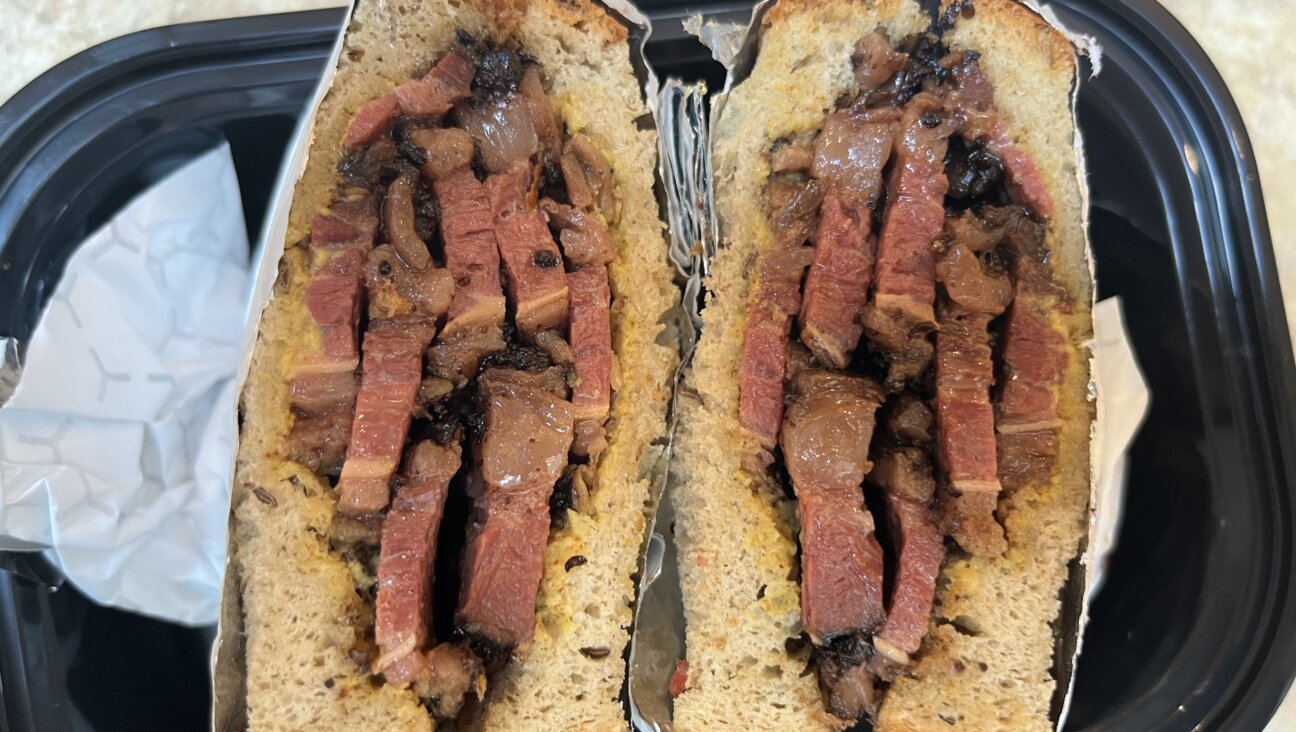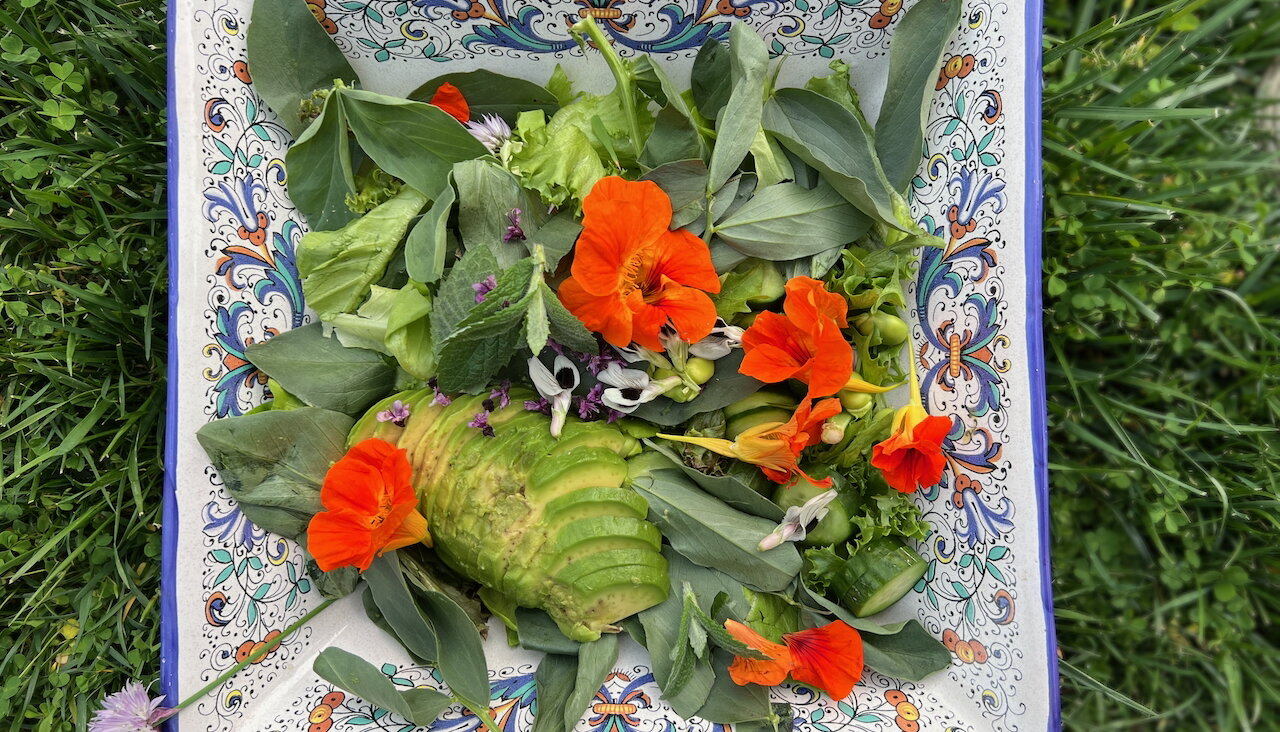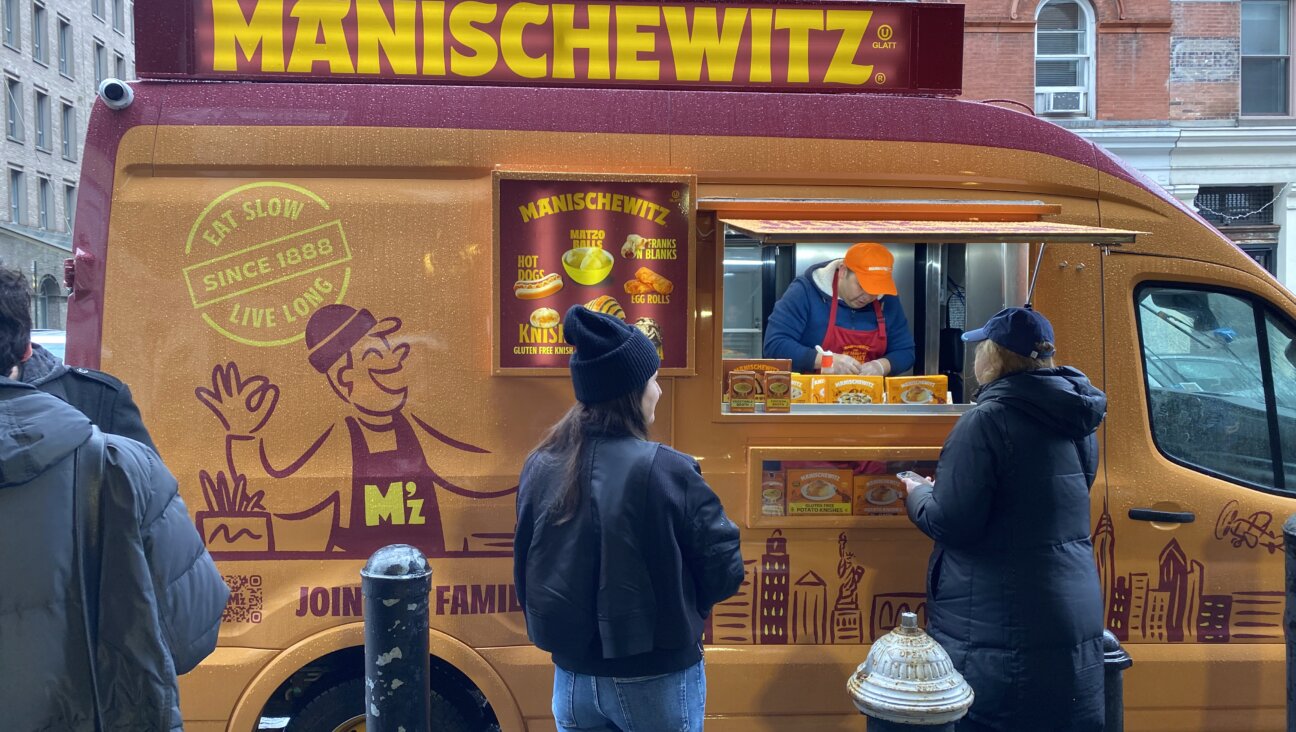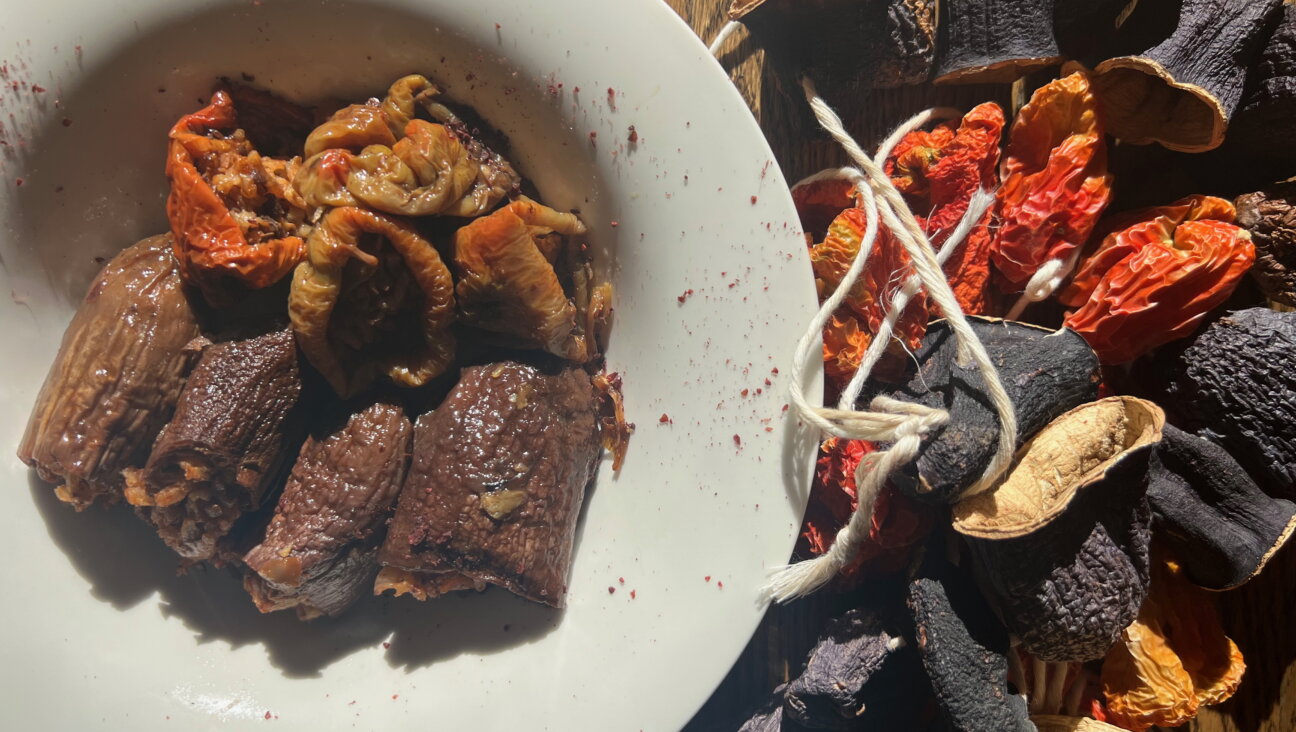Marching and Fasting for Labeling Genetically Modified Food

Right2Know marchers on the Brooklyn Bridge Image by Ariel Vegosen
On Yom Kippur this year, I felt my ancestors calling me more than ever before. Normally I spend Yom Kippur in synagogue, but this year I did my t’shuvah (repentance) on the road, walking through neighborhoods, cities and country landscapes as part of the Right2Know March to get genetically modified (GM) foods labeled. As I fasted and marched alongside 50 other people — some fasting, some not — I felt deeply moved and spiritually motivated to share my Yom Kippur journey and determination to label GM foods with other Jews.
In America today, there is no way to know if we are eating foods containing genetically modified organisms (GMOs). The Right2Know March is built of a community of organizations, businesses and individuals who are walking to the White House with a simple message: label our food that contains GMOs. The march started on October 1 in Prospect Park, Brooklyn and is arriving in Washington, DC on World Food Day, October 16. We are walking 313 miles because we are deeply concerned about the health and environmental risks of GM foods and believe that everyone has the right to know what is in their food. As a Jew, I believe that GM foods are not kosher and are not in line with how the Torah teaches us to take care of the earth.
The Right2Know March is a result of growing frustration with President Obama’s pro-GMO stance, made apparent when his administration approved planting of GM alfalfa in January 2011 while leaving unfulfilled his campaign promise to label GM foods. The Right2Know March wants President Obama to keep his campaign promise made in 2007, which stated that foods that include ingredients from genetically modified crops should be labeled. As president, he vowed, he would strive to “let folks know when their food is genetically modified, because Americans have a right to know what they’re buying.” (Video of the President’s campaign promise can be seen at here.)
Fellow marcher Adam Eidinger, from Washington, DC, marched 18 miles on Yom Kippur, fasting the whole way. Upon reflection of the day he told me it felt symbolic that he couldn’t walk more than 18 miles, as 18 is the numeric value for chai, or “life.” “Fasting and walking helped me focus on atonement and tikkun olam, which is a unique Jewish idea of healing of the planet,” Adam said. “In a way, our Yom Kippur marching was an atonement for all of humanity’s careless manipulation of nature while also a chance to share our Jewish culture and identity with non-Jewish people on the march.”
The Right2Know March is being sponsored by numerous companies and organizations including [the Non-GMO Project, the Sustainable Living Road Show, and IFOAM. Faith-based communities supporting and endorsing the march include Urban Adamah, Wilderness Torah, Yiddish Farm, and the Community of Living Traditions.
“As long as there is great uncertainty about the long term effects of GMOs on the environment and upon tikkun olam, and justice issues that arise from the right of communities to access their own seeds, plants, and land (a right currently challenged by many food corporations), the use of GMO food products should be questioned. People who view GMO food products as muktzeh — out of bounds for eco-kosher use — have a right to know which products contain GMOs. GMO ingredients should appear on food labels,” said Rabbi Lynn Gottlieb of the Shomer Shalom Network for Jewish Nonviolence at The Community of Living Traditions.
Ariel Vegosen is an environmental activist, a Jewish educator, and works with Mintwood Media and Dr. Bronners Magic Soaps, which sponsored the march. She is currently walking from NYC to Washington DC as part of the Right2Know March and can be reached at [email protected].
The Forward is free to read, but it isn’t free to produce

I hope you appreciated this article. Before you go, I’d like to ask you to please support the Forward.
Now more than ever, American Jews need independent news they can trust, with reporting driven by truth, not ideology. We serve you, not any ideological agenda.
At a time when other newsrooms are closing or cutting back, the Forward has removed its paywall and invested additional resources to report on the ground from Israel and around the U.S. on the impact of the war, rising antisemitism and polarized discourse.
This is a great time to support independent Jewish journalism you rely on. Make a gift today!
— Rachel Fishman Feddersen, Publisher and CEO
Support our mission to tell the Jewish story fully and fairly.
Most Popular
- 1

Fast Forward Ye debuts ‘Heil Hitler’ music video that includes a sample of a Hitler speech
- 2

Opinion It looks like Israel totally underestimated Trump
- 3

Culture Cardinals are Catholic, not Jewish — so why do they all wear yarmulkes?
- 4

Fast Forward Student suspended for ‘F— the Jews’ video defends himself on antisemitic podcast
In Case You Missed It
-

Culture How one Jewish woman fought the Nazis — and helped found a new Italian republic
-

Opinion It looks like Israel totally underestimated Trump
-

Fast Forward Betar ‘almost exclusively triggered’ former student’s detention, judge says
-

Fast Forward ‘Honey, he’s had enough of you’: Trump’s Middle East moves increasingly appear to sideline Israel
-
Shop the Forward Store
100% of profits support our journalism
Republish This Story
Please read before republishing
We’re happy to make this story available to republish for free, unless it originated with JTA, Haaretz or another publication (as indicated on the article) and as long as you follow our guidelines.
You must comply with the following:
- Credit the Forward
- Retain our pixel
- Preserve our canonical link in Google search
- Add a noindex tag in Google search
See our full guidelines for more information, and this guide for detail about canonical URLs.
To republish, copy the HTML by clicking on the yellow button to the right; it includes our tracking pixel, all paragraph styles and hyperlinks, the author byline and credit to the Forward. It does not include images; to avoid copyright violations, you must add them manually, following our guidelines. Please email us at [email protected], subject line “republish,” with any questions or to let us know what stories you’re picking up.















